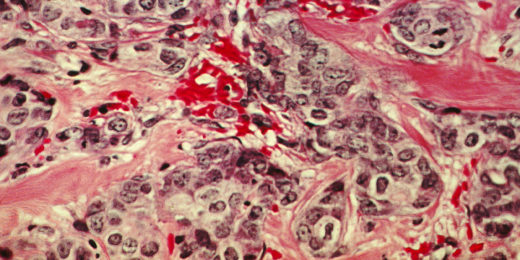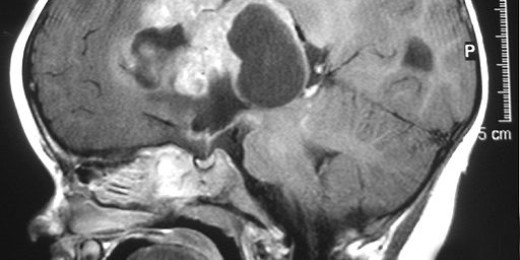ESPN told the story of Stanford football coach David Shaw donating stem cells to save his brother, who had a rare form of lymphoma.
Category: Cancer
AI tool created to guide colorectal cancer care with more precision
Scientists have created an AI tool to help doctors more precisely choose colorectal cancer treatments that will work best on individual patients.
Investigating disparities in eye cancer treatment
Stanford researchers studied whether there was any pattern linking patients' racial, ethnic or socioeconomic status with which treatment they received.
Cell growth clue could lead to new breast cancer treatments
Stanford stem cell biologists have found a way to block a signal that causes growth of breast cancer cells, opening potential for new treatments.
Does retinol deserve the hype? A Stanford dermatologist weighs in
A Stanford dermatologist weighs in on using retinol to fight aging, acne and other skin problems, and whether it deserves the hype.
‘Instagram-like filter’ labels molecular details in tumor images
Scientists created an algorithm that analyzes a cancer biopsy and pairs spatial information with gene expression to better understand the disease.
New evidence suggests early metastasis is common in lung and breast cancers
In breast and lung cancer patients with metastatic disease, seeds of metastasis were often planted before the primary tumor was diagnosed, a study finds.
“Microbubbles” and ultrasound bombard cancer cells in mice
Using microbubbles and ultrasound, researchers have created a cancer treatment that kills tumor cells and recruits immune cells to the tumor.
Analyzing patients’ tumors, from the inside out
The experts on Stanford Medicine's molecular tumor board brainstorm new ways to attack individual patients' tumors at the genetic level.
Navigating cancer as a young adult: ‘I’m trying to figure out who I am’
Teens and young adults with cancer face biological and psychosocial challenges distinct from those of other cancer patients.
New advances toward safely targeting immune cells to pediatric brain tumors
Stanford scientists have taken important steps toward figuring out how to use immune therapy for a group of severe pediatric brain tumors.
Outsmarting cancer: Innovative treatments and diagnostics offer new hope
Stanford researchers are devising new ways to tackle cancer through better, more sophisticated diagnostics and treatments.
Combating chemo brain: Researchers zero in on causes and treatment
A Stanford neurologist and her colleagues are zeroing in on identifying causes and treatments for chemo brain.
New cancer treatment that tracks and zaps tumors is coming to Stanford Medicine
Stanford Medicine will be the first to use a new technology that aims to heighten precision of radiation therapy in cancer patients.
Walk with me: Patients and med students bond, learn from each other in course
In the Stanford Medicine course Walk with Me, students are paired with patients to learn about life with a chronic or serious illness.
Five years later: Lucy Kalanithi on loss, grief and love
Stanford physician Lucy Kalanithi opens up about loss, grief and love for her neurosurgeon husband, Paul, five years after his death from lung cancer.

















